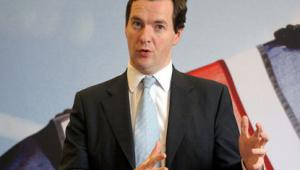By Lucy Phillips
29 March 2011
The chancellor should spell out the economic conditions that would make him deviate from his deficit reduction plan, the director of the Institute for Fiscal Studies told MPs yesterday.
Paul Johnson was giving evidence to the Treasury select committee’s inquiry into last week’s Budget. He said Chancellor George Osborne was right to stick to his plan to eliminate the structural deficit over the current Parliament, despite recent poor growth figures. ‘Given the course he has set himself, he does not have enough basis to change course,’ Johnson said, and changing tack so soon into the plans might give the markets cause for concern.
But the chancellor could boost his credibility by spelling out the circumstances that would make him deviate from his plans, such as three or four quarters of negative growth and double-dip recession, Johnson added.
‘There are possible states of the world where it would not make sense to carry on down the current path... In the world of a recession, I would expect the chancellor to think again about whether the fiscal mandate is the right thing to be aiming for.’
Pressed further by the MPs, Johnson said: ‘If I was chancellor I would definitely have [a plan B] and I would think very hard about giving some sort of indication about the circumstances in which I might use it.’
Johnson said while both high inflation and lower growth threatened the government’s deficit reduction plan, another ‘substantial risk’ was that the planned spending cuts would prove too difficult to achieve. He said: ‘Whatever happens, it is pretty clear we have a plan that will move us from a colossal deficit to a very much smaller one. That’s dependent on delivering some very substantial public spending cuts and these have become more substantial because inflation is higher. If I was in government I would be most worried about how I was going to make these spending cuts, particularly given the degree of political difficulty. At the moment there is a plan but almost nothing has happened.’
When questioned on the government’s new plan for growth, launched alongside the Budget, Johnson said it was unlikely any of its effects would be felt during the current Parliament. He told the committee: ‘It’s very difficult to change the path of growth in the short run, all governments have found that... It’s pretty hard to say [the growth plan] will definitely have some impact during that period [the current Parliament].’
Overall, Johnson said last week’s Budget did ‘almost nothing to household income’ and agreed with committee chair and Conservative MP Andrew Tyrie that it was a ‘fiscal non-event’.
‘It was always going to be a bit of a non-event after two huge events last year. The June Budget and Comprehensive Spending Review were colossal. It would have been very surprising if we had a big set of changes,’ said Johnson.




















